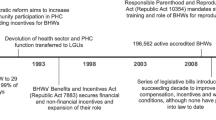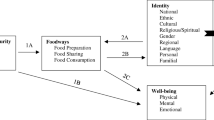Abstract
The success of municipal wastewater reuse programs is often dependent on public willingness to use recycled water. Psychological reactions that contribute to behavioral intention have varying levels of influence, with the reaction of disgust or “yuck factor” creating the primary behavioral barrier. Factors influencing disgust reactions to recycled wastewater are of interest to psychologists and water managers alike. Research has shown that community education initiatives can increase willingness to support water reuse projects. A two-part study was carried out with a total of 114 participants in Norman, Oklahoma, where the local government is interested in implementing wastewater reuse to supplement water supply during drought. Participants were asked about their willingness to use this water and their feelings of disgust, as well as their trust of public officials before and after touring the Norman Water Reclamation Facility. Results found that willingness and disgust are inversely related. Political affiliation, education, and previous knowledge of the program had significant effects on willingness to use recycled wastewater. Community education significantly increased willingness to use that water and to support an eventual ballot initiative to expand indirect potable reuse. These results suggest community education can overcome initial reactions of disgust that contribute to behavioral intention.



Similar content being viewed by others
Data availability
All data and data dictionaries are available at https://osf.io/2ne3s/. All study materials are available at https://osf.io/2ne3s/.
Code availability
Data analysis was carried out using R and R studio standard software packages. Code files are available at https://osf.io/2ne3s/.
References
Babbitt B (2007) Cities in the wilderness: A new vision of land use in America. Island Press
Bahri, A., & Asano, T. (2011). Global challenges to wastewater reclamation and reuse. On the Water Front, 65.
Baumann DD (1983) Social acceptance of water reuse. Appl Geogr 3(1):79–84
Botzen WW, Michel-Kerjan E, Kunreuther H, de Moel H, Aerts JC (2016) Political affiliation affects adaptation to climate risks: evidence from New York City. Clim Chang 138(1-2):353–360
City of Norman. Norman Utilities Authority (NUA). (2014). ‘2060 Strategic Water Plan. Kansas City, MO: Carollo.
Cokely ET, Galesic M, Schulz E, Ghazal S, Garcia-Retamero R (2012) Measuring risk literacy: the Berlin numeracy test. Judgm Decis Mak
Connolly T, Zeelenberg M (2002) Regret in decision making. Curr Dir Psychol Sci 11(6):212–216
Dean AJ, Fielding KS, Newton FJ (2016) Community knowledge about water: who has better knowledge and is this associated with water-related behaviors and support for water-related policies? PLoS One 11(7)
Distler LN (2018) Potable Water Reuse in Albuquerque, NM: A large scale community survey to understand public perceptions and the impact of educational materials on acceptance.
Dolnicar S, Hurlimann A (2009) Drinking water from alternative water sources: differences in beliefs, social norms and factors of perceived behavioural control across eight Australian locations. Water Sci Technol 60(6):1433–1444
Dolnicar S, Hurlimann A, Nghiem LD (2010) The effect of information on public acceptance–the case of water from alternative sources. J Environ Manag 91(6):1288–1293
Dunlap RE, Xiao C, McCright AM (2001) Politics and environment in America: partisan and ideological cleavages in public support for environmentalism. Environ Politics 10(4):23–48
Duong K, Saphores JDM (2015) Obstacles to wastewater reuse: an overview. Wiley Interdiscip Rev Water 2(3):199–214
Dutnell, R. C., Kolar, R., Vieux, B. E., Nairn, R. W., Miller, G. A., & Julian, J. P. (2010). A fluvial geomorphic and sediment transport study of the little river upstream of Lake Thunderbird using an acoustic Doppler current profiler (ADCP). Oklahoma Water Resources Center.
Farley, T. (2020). Water works: $700,000 federal grant will help with research to provide drought-proof water supply from Lake Thunderbird. Norman Transcript, pp.
Fu H, Liu X (2017) A study on the impact of environmental education on individuals’ behaviors concerning recycled water reuse. Eurasia J Math Sci Technol Ed 13(10):6715–6724
Gilbertson M, Hurlimann A, Dolnicar S (2011) Does water context influence behaviour and attitudes to water conservation?. Australasian J Environ Manag 18(1):47–60
Haarhoff J, Van der Merwe B (1996) Twenty-five years of wastewater reclamation in Windhoek, Namibia. Water Sci Technol 33(10–11):25–35
Hui, I., & Cain, B. E. (2018). Overcoming psychological resistance toward using recycled water in California. Water and Environ J, 32(1), 17-25.
Hurlimann, A., & Dolnicar, S. (2010). When public opposition defeats alternative water projects–the case of Toowoomba Australia. Water research, 44(1), 287-297.
Lakoff G (2010) Why it matters how we frame the environment. Environ Commun 4(1):70–81
Lautze J, Stander E, Drechsel P, da Silva AK, Keraita B (2014) Global experiences in water reuse. CGIAR Research Program on Water, Land and Ecosystems (WLE). International Water Management Institute (IWMI), Colombo, Sri Lanka, p 31
Layden L (2014) Why Norman is the only Oklahoma Town where residents control the price of water. National Public Radio, StateImpact Oklahoma Retrieved from https://stateimpact.npr.org/oklahoma/2014/06/26/why-norman-is-the-only-oklahoma-town-where-citizens-control-the-price-of-water/
Lim, K., & Safford, H. (2019). Improving public perception of water reuse. UC Davis Policy Institute for Energy, Environment, and the Economy.
Menegaki AN, Mellon RC, Vrentzou A, Koumakis G, Tsagarakis KP (2009) What’s in a name: framing treated wastewater as recycled water increases willingness to use and willingness to pay. J Econ Psychol 30(3):285–292
Meyer, P. (1988). Defining and measuring credibility of newspapers: developing an index. Journalism quarterly, 65(3), 567-574.
Ormerod KJ, Scott CA (2013) Drinking wastewater: public trust in potable reuse. Sci Technol Hum Values 38(3):351–373
Po M, Nancarrow BE, Kaercher JD (2003) Literature review of factors influencing public perceptions of water reuse. CSIRO
Price J, Fielding KS, Gardner J, Leviston Z, Green M (2015) Developing effective messages about potable recycled water: the importance of message structure and content. Water Resour Res 51(4):2174–2187
Schmidt, C. J., Kugelman, I., & Clements III, E. V. (1975). Municipal wastewater reuse in the US. Journal (Water Pollution Control Federation), 2229-2245.
USEPA. 2012. Guidelines for water reuse. EPA/600/R-12/618. Washington, DC: United States Environmental Protection Agency (USEPA). Available at http://nepis.epa.gov/Adobe/PDF/P100FS7K.pdf (accessed on August 29, 2014).
Wester, J., Timpano, K. R., Çek, D., & Broad, K. (2016). The psychology of recycled water: factors predicting disgust and willingness to use. Water Resources Research, 52(4), 3212-3226.
Acknowledgements
This study evolved from a general survey of public perceptions to a collaboration with Norman city officials, who fully supported and encouraged this project by providing transparent and understandable education on water treatment and by promoting my community tours. Many thanks to City of Norman Mayor Breea Clark, as well as, Ryan Bart, Ken Komiske, and Steve Hardeman for their help. I would also like to thank Gabrielle Bittner and Brooke Foster for their help in designing and carrying out this research. It is our hope that this research will encourage city officials to expand community education in Norman and inform other municipalities that water reuse is achievable when education and public reactions are prioritized.
Funding
This research was partly funded by the Oklahoma NASA Workforce Development Grant, which provided funding for 8 weeks. This research was supported by the Department of Geography and Environmental Sustainability at the University of Oklahoma.
Author information
Authors and Affiliations
Corresponding author
Ethics declarations
Ethics approval
The University of Oklahoma IRB submission # 10957
Consent to participate
Participants agreed to an online or unsigned consent form which can be found on Open Science Framework here:
Consent for publication
All contributing authors consent to the publication of this research.
Conflict of interest
The authors declare no conflict of interest.
Additional information
Publisher’s note
Springer Nature remains neutral with regard to jurisdictional claims in published maps and institutional affiliations.
Rights and permissions
About this article
Cite this article
Wade, M., Peppler, R. & Person, A. Community education and perceptions of water reuse: a case study in Norman, Oklahoma. J Environ Stud Sci 11, 266–273 (2021). https://doi.org/10.1007/s13412-021-00667-4
Accepted:
Published:
Issue Date:
DOI: https://doi.org/10.1007/s13412-021-00667-4




